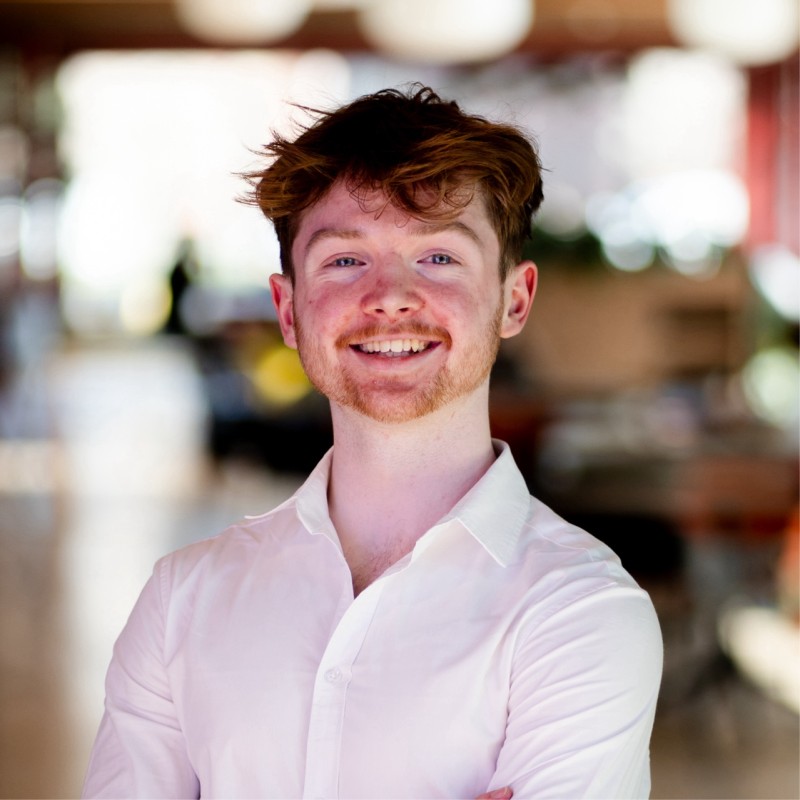What it does
Rephobia is a therapist-led VR platform that helps people confront and overcome phobias. It combines immersive exposure scenarios with real clinical support to make therapy safer, more accessible, and more effective.
Your inspiration
Rephobia was inspired by my own experience with OCD and phobias. I knew how isolating fear could feel, and how difficult it was to find support that was both affordable and effective. At university, I began exploring how VR could be used for exposure therapy – a clinically proven method that remains out of reach for many. Rephobia was born from a drive to close that gap. I set out to create a solution that didn’t just simulate fear but supported users through it, combining immersive tech with real therapists to make treatment more human, effective, and accessible.
How it works
Rephobia uses virtual reality to simulate realistic scenarios based on a user’s specific phobia - from spiders and heights to flying or public speaking. Built in Unity and delivered through lightweight headsets like the Meta Quest, these environments offer high realism and interactivity. What makes Rephobia different is its therapist-led model. A licensed therapist guides each session in person, providing real-time support, tracking progress, and adjusting difficulty as needed. By combining immersive technology with clinical expertise, Rephobia delivers exposure therapy that is safe, personalised, and evidence-based - helping users gradually build confidence and reduce fear in a controlled, supportive environment.
Design process
Rephobia began as a university research concept, rooted in my personal experience with OCD and a desire to make phobia treatment more accessible. I started by analysing traditional exposure therapy, identifying key barriers like cost, availability, and fear of first contact. I built early prototypes in Unity, starting with a basic spider scenario. To validate demand, I ran a large-scale survey with over 400 phobia sufferers. Their feedback shaped everything - from pacing and realism to interaction design - ensuring each environment felt immersive yet manageable. I integrated Meta’s All-In-One SDK to enable natural hand tracking, voice cues, and responsive environments. I also collaborated with university psychology professionals to review therapeutic structure and ensure clinical relevance and safety. Since then, I’ve improved texture quality, user onboarding, and scenario responsiveness. Rephobia has evolved from a solo prototype into a clinically-informed platform - blending thoughtful design, immersive tech, and real-world potential.
How it is different
Most VR mental health tools are either self-guided apps with no clinical oversight or expensive programs limited to research labs and private clinics. Rephobia is different. It combines the clinical effectiveness of in-person exposure therapy with the immersive power of VR - while remaining affordable and accessible. Every session is guided by a licensed therapist, who supports the user, tailors the exposure, and adjusts difficulty in real time. Users aren’t left alone to face triggering scenarios without help. Rephobia also runs on standalone headsets like the Meta Quest, eliminating the need for bulky or costly setups - making it viable for clinics, schools, and support services. This clinically grounded, human-centred approach makes Rephobia the first VR therapy solution to truly balance immersion, affordability, and real-world scalability.
Future plans
Next, we’re expanding beyond phobias to support OCD, PTSD, and social anxiety - conditions where exposure therapy is also clinically effective. Each new environment will be co-designed with therapists to ensure safety, realism, and psychological integrity. We’re preparing for pilot trials with mental health professionals, while refining features like user onboarding, progress tracking, and therapist-facing tools to improve clinical usability. By partnering with private clinics and university wellbeing services, we'll scale into wider healthcare systems like the NHS. Rephobia’s mission is to make guided, immersive therapy widely accessible.
Awards
Rephobia won the Unity for Humanity Award, selected from a $600K global prize pool - one of only two student-led projects selected worldwide. We have also won the Co‑Founders Programme 2025, placed 1st in Queen’s “What’s the Big Idea?”, 2nd in Belfast City Council’s “21 Under 21”, and won Queen’s Dragon’s Den competition.



Connect